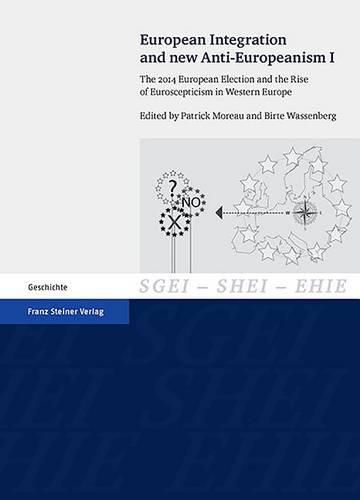Readings Newsletter
Become a Readings Member to make your shopping experience even easier.
Sign in or sign up for free!
You’re not far away from qualifying for FREE standard shipping within Australia
You’ve qualified for FREE standard shipping within Australia
The cart is loading…






The economic crises since 2008, the tensions concerning the Euro, the Greek question and the refugee problem have fuelled a strong Eurosceptic movement. At the 2014 European elections, the rise of Eurosceptic forces could be observed in virtually all Member States of the EU. This publication regroups the contributions to a Conference organized 2014 in Strasburg by the CNRS-University of Strasbourg research unit UMR Dynamiques europeennes, in the framework of the IDEX excellence project The European Integration and the New Anti-Europeanism. In this first of two volumes, anti-Europeanism and Euroscepticism are examined as political phenomena and objects of interdisciplinary research. The focus is on traditionally Eurosceptic Great Britain and on sometimes very recent anti-European movements within the EC founding states (France, Germany, Italy, and the Netherlands), their discourses and voters. What reasons prompt anti-European voters: rejection of immigration, xenophobia, fear of the future, nationalism or the rejection of capitalism and globalization? Or is it the collective disappointment with the incapacity of the European elites to communicate with the majority of voters?
$9.00 standard shipping within Australia
FREE standard shipping within Australia for orders over $100.00
Express & International shipping calculated at checkout
The economic crises since 2008, the tensions concerning the Euro, the Greek question and the refugee problem have fuelled a strong Eurosceptic movement. At the 2014 European elections, the rise of Eurosceptic forces could be observed in virtually all Member States of the EU. This publication regroups the contributions to a Conference organized 2014 in Strasburg by the CNRS-University of Strasbourg research unit UMR Dynamiques europeennes, in the framework of the IDEX excellence project The European Integration and the New Anti-Europeanism. In this first of two volumes, anti-Europeanism and Euroscepticism are examined as political phenomena and objects of interdisciplinary research. The focus is on traditionally Eurosceptic Great Britain and on sometimes very recent anti-European movements within the EC founding states (France, Germany, Italy, and the Netherlands), their discourses and voters. What reasons prompt anti-European voters: rejection of immigration, xenophobia, fear of the future, nationalism or the rejection of capitalism and globalization? Or is it the collective disappointment with the incapacity of the European elites to communicate with the majority of voters?